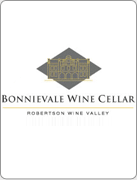2787
VIEWS
VIEWS
CAPE TOWN: Unsung heroes: The Role of Cape Townââ¬â¢s Industrial Areas
Recent Western Cape Business News
Supply and demand
The outlying areas of the Table Bay region originally developed to support the industrialisation of the city of Cape Town. Salt River developed rapidly in the early 1900s thanks to a growing railway network in the Cape. Steel foundries and locomotive industries sprang up, while other industrial buildings, factories and warehouses popped up to service the growing CBD. The inter-relationship between industrial processes, the need for labour and the opportunity for employment meant that Salt River also developed low to middle income residential pockets and merged with the neighbouring city suburb of Woodstock – a residential area that had been growing steadily since the mid-19th century.
History converges for Paarden Eiland at much the same time with the area’s spatial designation becoming separated from the rest of the Milnerton Estate by the arrival of the South African Storage Company Ltd (later to become the Imperial Cold Storage & Supply Co). Sadly the company, despite a long history is no more today. The cold storage company rented about 30 lots of land and, as such, became the catalyst for the development of one of Cape Town’s major industrial zones.
Neighbouring Maitland also developed as a result of its role as a major transport hub connecting Cape Town with the rest of Africa – a key factor in developing trade, warehousing and manufacturing in the area.
Industrial zones are stimulated by healthy commerce, and historically they have grown in an organic and functional way. A fair reflection of the greater business picture in Cape Town, the Paarden Eiland of today is dominated by engineering firms, hardware and homeware companies, motor-related industries and printing, signage and design companies.
As urban centres grow rapidly across the world, industrial zones are increasingly being reimagined to allow for commerce that is close to the urban edge, yet at a lesser premium than property or rental prices billed in the central city nodes. In many cases, industrial areas are also being repurposed into creative zones and actively envisioned as mixed-use lifestyle spaces on the fringes of the city centre.
The redevelopment of several key sites in Woodstock beginning in 2007 saw an influx of new businesses and residents to the area and, perhaps inadvertently, opened a door to the industrial zones of Cape Town. This corridor could potentially link the city to a number of suburbs through the development of a mixed-use picture of industrial, office and residential developments, interspersed with housing that could range from low-income and social housing to middle-income developments and high-end seafront apartments.
Future plans
The key enabler – public transport – is beginning to fall into place, with MyCiTi bus routes criss-crossing between the current residential and industrial areas. There is also a harbour, rail networks, accessible highways and roads, and now, a series of bicycle and pedestrian paths. A proposed spatial framework for Milnerton South to Paarden Eiland (City of Cape Town, 2013) envisages a number of projects that aim to connect spaces and people. These include a green park that will stretch from the central city into the industrial areas through the Zoar Vleiland. A raised promenade is proposed for the Paarden Eiland seafront, where traders can sell their wares, much as they currently do at the Milnerton Flea Market.
In keeping with Paarden Eiland’s market history and current fresh produce site, it is proposed that a market hub is developed that will allow crafters, food producers and artisans to work and sell their wares to the public, while attracting tourism and vibrancy to the disused open space that dislocates the centre of Paarden Eiland.
People are central to a reimagined industrial zone for Cape Town. Not only should there be residential buildings and conveniently located offices and retail within the mix, but an integrated industrial zone also includes public spaces and walkways. There are several plans being mooted to transform barren littered fields and raw patches of ground into public spaces and pause spots.
Central to this plan is the creation of a revitalised river system. The Salt River was once free flowing but the canalisation of the river soon isolated the Zoar Vlei. The idea is to reclaim the river and resolve the current eyesore and health hazard that is the wetland, but it is a complex project requiring solar pumps and the propagation of a system of filtering river reeds.
Put people first
Imagining an integrated industrial Cape Town makes sense. The current disconnect between ‘town and township’ in Cape Town is exacerbated by the industrial zone that lies between these spaces. As our industrial areas grow, evolve and become more people-focused and vibrant, a thread begins to run naturally between people and place.
The realisation of this vision relies on the symmetry of public and private partnership but the central city is testament to the fact that this is a feasible development model and one that is booming 10 years later.
Full article at:- http://www.capetownpartnership.co.za/2014/07/unsung-heroes-the-role-of-cape-towns-industrial-areas/
Business News Sector Tags:
|
|
||
|
Accommodation
Foreign Exchange
Directory
Fax 2 Email
Finance
Furniture
Online Casino
Restaurant
Shop Online
Study IT Online
Web Design
Weddings
Work from Home
|
||
|
Company News
|
||










